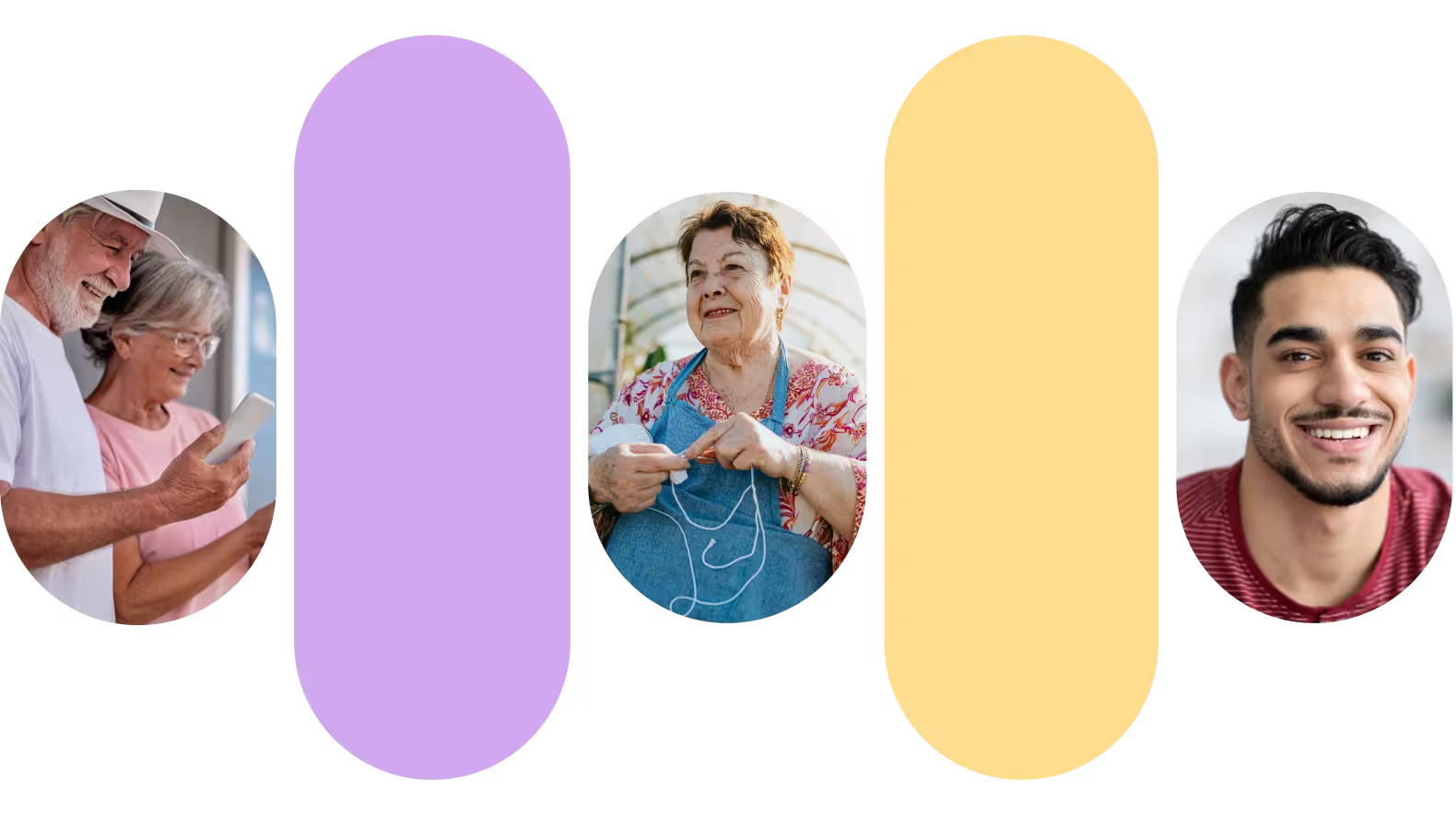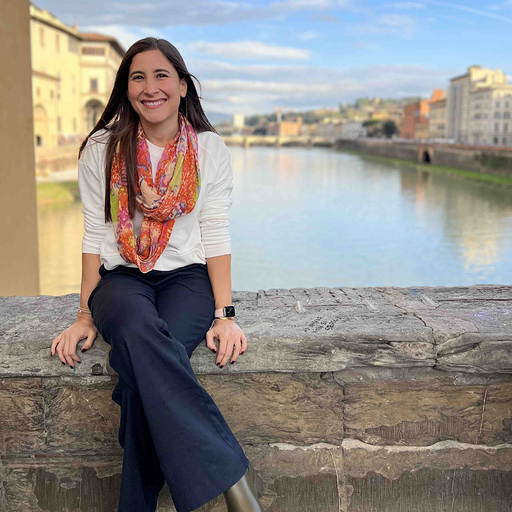Top 8 Colleges for Deaf and Hard of Hearing Students
Discover how colleges for deaf and hard of hearing provide exceptional support, and a transformative educational journey for deaf and HoH students!

When it comes to choosing the best college to attend, many students and families consider similar factors such as the school's reputation, cost, financial aid opportunities, and location. After all, this is a major decision, and college is not just your education; it will be your home for the next four years.
But for those who are deaf or hard of hearing, this decision-making journey takes a different route. Alongside the usual considerations, there's a unique set of criteria to consider when selecting colleges for deaf and hard of hearing that align with the specific accommodations and support needed.
While the Americans with Disabilities Act (ADA) ensures basic access and accommodations, not every college goes the extra mile. Beyond legal obligations, certain colleges take it a step further creating an environment that not only meets deaf and hard of hearing students' needs but embraces their unique perspectives.
Remember, college life extends beyond classrooms into student groups, sports events, and the overall rhythm of campus life. All these elements combine to create a space that embraces and uplifts deaf and hard of hearing students.
So if you're ready to take the next step in higher education, check out these top 6 colleges for deaf and hard of hearing students to consider:
1. Gallaudet University
As the world's only liberal arts university for the deaf and hard of hearing, Gallaudet offers an environment where communication isn't a barrier but a bridge.
Located in Washington, DC, the university focuses on creating an exceptional college experience tailored to the unique needs of deaf and hard of hearing students that stands above the rest.
At Gallaudet, American Sign Language (ASL) is central to daily interactions, fostering a deep sense of belonging and community. Beyond academics, the university offers rich cultural programs, dynamic student organizations, and athletic events integrated into deaf culture.
Gallaudet's commitment to providing high-quality education and a dedication to inclusivity and innovation makes it a top college for deaf and hard of hearing students.
2. National Technical Institute for the Deaf
The National Technical Institute for the Deaf (NTID) is part of the Rochester Institute of Technology (RIT). NTID has a dynamic and inclusive environment where over 1,100 deaf and hard of hearing students thrive among a larger undergraduate community of 14,000 students.
NTID offers 200 programs based on a rich legacy of technical excellence, NTID's unique blend of education and innovation for a successful future in a city known for its deaf community. What’s best? NTID is a great college for deaf and hard of hearing students, helping jumpstart your career with a solid network of successful deaf and hard of hearing professionals around the world.
3. California State University Northridge (CSUN)
CSUN is among the few institutions offering a comprehensive undergraduate program centered on Deaf Studies, with over 150 deaf or hard-of-hearing peers.
Known for delivering high-quality education across various fields related to the deaf community and promoting involvement in student organizations and multiple events, including Deafestivals and ASL/Deaf Theatre productions, visiting speakers and on-the-job training while earning university credit.
NCOD provides communication access, leadership opportunities, scholarships, and direct communication classes for students who are deaf and hard of hearing. Registering with NCOD allows students to receive access to services such as interpreting, speech-to-text transcription, note-taking, tutoring, academic advisement, and priority registration.
4. Southwest College for the Deaf (SWCD)
Howard College's SouthWest College Institute for the Deaf is the country's only self-contained community college for deaf and hard of hearing students. The college enhances economic, community, cultural and personal development through appropriate partnerships and student development practices to enhance learning, including best practices in deaf education.
They offer associate degree and certification programs to help students prepare for future careers or to transition to a senior college or university such as Gallaudet University or NTID.
5. The University of Michigan
The University of Michigan has made it part of its mission to accommodate deaf and hard of hearing students ensuring equal opportunity and an inclusive experience on more traditional college campuses.
The university’s Office of Services for Students with Disabilities (SSD) continues to advocate and provide resources for deaf and hard of hearing students, setting an example for other major universities. Make sure to reach out to SSD and learn about their diverse range of academic accommodations, innovative resources and technology to get the support you need.
6. Central Washington University
This university has made great strides in providing equal access to the learning environment through accommodations that allow all students to learn. They offer small, student-centered classes in American Sign Language (ASL). Students study ASL and the rich culture, history, and society.
Resources available to students to support their journey throughout the courses at CWU include but are not limited to ASL Resource Center, ASL Club, and community events. Course modalities are hybrid, online, and distance learning. ASL minor is also available for students interested in pursuing this field in a smaller scope.
7. University of Minnesota
The University of Minnesota has several resources and services to support students with disabilities. They also actively participate in the College Bowl, a spirited academic event hosted by the National Association of the Deaf that brings together deaf contestants from top colleges and universities serving deaf and hard of hearing students, which exemplifies the vital role that colleges and universities play in fostering inclusivity and promoting activities where deaf students can not only participate but also flourish.
8. Rochester Institute of Technology (RIT)
The Rochester Institute of Technology (RIT) is home to the National Technical Institute for the Deaf (NTID), providing a vibrant and inclusive environment for deaf and hard of hearing students. NTID, as part of RIT, offers a wide range of programs and resources tailored to the unique needs of its diverse student population. With a commitment to technical excellence, RIT emphasizes innovation and education for successful futures. The campus fosters a sense of community where over 1,100 deaf and hard of hearing students thrive alongside a larger undergraduate community, creating a supportive and enriching educational experience.
Other Notable Institutions
It’s also worth mentioning some institutions which offer extensive services through their Disability Centers, such as:
- University of Arizona: Their wide range of services, including interpreters, captioning, and notetaking services as well as their inclusive campus community help create a supportive environment for deaf and hard of hearing students.
- Lamar University (Beaumont, Texas) Lamar University houses the Department of Deaf Studies and Deaf Education, a highly respected program for students interested in careers in deaf education, sign language interpretation, and deaf studies. The university provides strong support services through its Office of Services for Students with Disabilities, ensuring a fully accessible learning environment.
- University of Southern California (USC) USC’s Disability Services and Programs (DSP) office provides comprehensive support for deaf and hard of hearing students, including captioning, ASL interpretation, and other accommodations.
- Goshen College (Indiana) This small college offers an ASL Interpreting major and is known for creating a strong sense of community for deaf and hard of hearing students.
How to Choose the Right College If You're Deaf or Hard of Hearing
Is the school you’re interested in attending not listed above? Not to worry. Choosing the right college is an important decision for anyone, and if you're deaf or hard of hearing, there are specific considerations to keep in mind to ensure that your college experience is supportive and accommodating.

Here are some key points to help you choose the right college:
- Communication Access and Support: Check if they have experience supporting deaf or hard of hearing students, such as sign language interpreters, note-takers, real-time captioning services, visual aids, FM systems, etc. Make sure the college is well-equipped to provide the support that suits your communication preferences.
- Accessibility of Facilities: Ask if they are equipped with assistive technology and have features that support your needs. For example, classrooms should be equipped with microphones, closed captioning for digital content, and effective light sources to help deaf and hard of hearing students understand the lecturer.
- Programs and Majors: Ensure that the college offers a range of courses and majors that align with your career goals.
- Faculty and Staff Training: Universities that invest in training their staff to support deaf or hard of hearing students will offer a more inclusive and accessible environment with effective communication strategies and accommodations.
- Student Organizations: Research whether the college has student organizations or support groups specifically for students who are deaf or hard of hearing. These groups can provide a sense of community and valuable resources.
- Location and Housing: Consider the location of the college and the accessibility of off-campus resources. Additionally, check the accessibility and accommodations provided in on-campus housing options.
- Financial Aid and Scholarships: Ask about financial aid options and scholarships since many colleges offer scholarships for students who are deaf or hard of hearing.
- Campus Culture: Research the college's commitment to diversity, inclusion, and accessibility.
- Talk to Current Students or Alumni: Connect with students who are deaf or hard of hearing at the colleges you're considering, as they can share their experiences, challenges, and the level of support they receive.
- Visit the Disability Services Office: Visit or call the disability services office to discuss your needs, ask questions, and understand how they handle support.
- Trust Your Instincts: Never undermine your intuition. Go to the college where you feel most supported and comfortable. Your personal comfort and well-being are important factors in your success.
Resources for Students Who Are Deaf or Hard of Hearing
- National Deaf Center (NDC): The NDC is a great resource for deaf and hard of hearing students as they transition from high school to college. They can help determine the appropriate accommodations for your needs and guide you through the process.
- Accessible College: This organization provides higher education transition assistance to prepare students for their move to college or university.
- Mobile Apps: Free mobile apps such as Nagish can facilitate phone calls with peers and professors during this exciting life stage, and free apps such as Google Live Transcribe can assist in note-taking during class.
Remember that every person’s needs are unique, so what works for one person might not work for another. Take your time to research the best college for deaf and hard of hearing students before making a decision. Ultimately, the right college for you will be one that not only meets your academic goals but also provides a supportive and inclusive environment for your specific needs.














